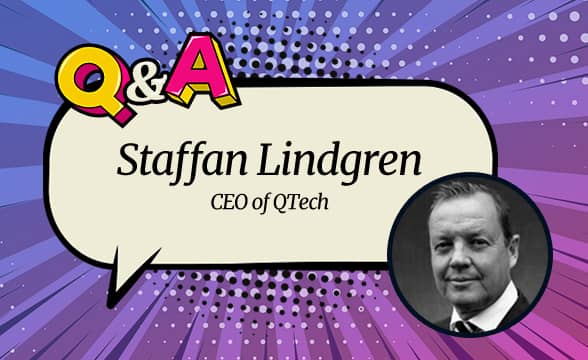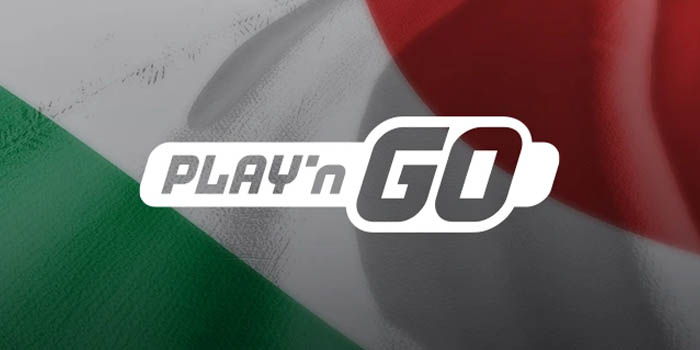QTech CEO Staffan Lindgren: “Effortless Integration Equips Our Clients with Best-in-breed Live Games for Their End Users”

Staffan Lindgren, a founder and architect of the huge NYX Gaming success story is now moving on with the next big thing as Global CEO and Chairman at QTech Games.
As an industry veteran, Staffan has been monitoring QTech Games for many years, ever since QTech became one of the first platforms to offer NYX games to growth markets, such as China and India.
Q: How do you assess post-pandemic trends in gaming?
While the move away from land-based towards to digital domain was already well underway, the pandemic has acted as a catalyst, accelerating the trend towards digitized entertainment. As the coronavirus has closed casinos or made people far more reluctant to venture out because of the risks, our live-casino product has excelled itself, delivering comparable gaming experiences from the comfort of players’ homes or on the move.
Q: How did you embrace this trend?
We saw it early and were quick to bolster our existing live-dealer portfolio, allowing our partners more scope and flexibility with which to diversify their revenue streams. Chief amongst those integrations have been partnerships with the likes of Ezugi and Evolution, further consolidating QTech Games’ position as a comprehensive one-stop-shop for global operators.
Their cutting-edge live studios deliver unrivaled and immersive experiences for players, who can now enjoy these engaging, real-time table games (from classics like blackjack, roulette, baccarat, and three-card poker to regional favorites such as India’s Andar Bahar) via a super-agile QTech platform.
Effortless integration equips our clients with best-in-breed live games for their end-users. Market-leading customization options, dedicated tables, and native-speaking dealers also make it far easier to customize the experience to any specific market needs.
Strong growth in the live-casino vertical continues in the face of the pandemic’s fluctuating waves and strains, and we’re delighted to see how these games are performing across a range of emerging markets. Players are still eager to channel the visceral thrill of participating in a real-world casino, not to mention the chance for some long-delayed social interaction with the dealers themselves.
Q: What is the difference between Asia vs. Europe from an aggregation POV?
Some will say that operators in Asia are more reliant on content aggregators than, for example, their counterparts in Europe, who tend to strike individual deals with content suppliers. However, as ever, the reality is more subtle and variable as to the art of content aggregation. Without wanting to go into unnecessary depth, though, I’d add that in Europe, many smaller studios enter large operators via an aggregator due to integration complexity and licensing expenditure. Operators in Asia, on the other hand, use aggregators because they then obtain a lot of varied content from one supplier. Moreover, European studios are somewhat more reluctant to invest two-to-three years for their Asian sales to generate revenues, but I’m obviously generalizing to make a point here.
Q: How do you set the pace in India’s developing but uncertain market?
QTech Games has developed quite a track record for developing new partnerships, opening its markets in new territories and regions, and bidding to secure a huge footprint across Asia and the Subcontinent. We are currently witnessing the greatest growth in India. That’s no surprise considering a ramping population of 1.4 billion, near-universal access to 4G, and dropping costs for smartphones and the internet.
Consequently, India’s online sector has welcomed a raft of acquisitions this year, as operators plant their flags in the sand ahead of the anticipated boom. Accordingly, QTech Games has been offering operators the chance to become the integration partner for new content/studios, removing the hassle of integrations in order that internal tech teams can concentrate on value-added processes. It all represents natural progress from our straightforward company maxim: one seamless integration for all growth territories.
As for the games themselves, it’s a question of localization. Just take a recent key supplier deal we made for the region with Woohoo’s targeted suite of games for India. The agreement features timeless table games, like Teen Patti, alongside exciting new RNG additions like Cricket Kings, whose immersive soundscapes and stunning graphics are tailored to give players a thematically engaging experience in a cricket-obsessed country. Like us, Woohoo bring a modern RNG methodology to the table, prioritizing mobile games that maximize the UI and UX in an efficient, uncluttered fashion.
After all, the fragmentation of Asia for game design and regional differences (be they the result of player preference or regulatory requirements) can always surprise. More broadly, QT Play, our game-changing recommendation engine, harnesses the capacity to partition this Pan-Asian variety and package it according to user choice or respective market conditions.
Q: Can you unpack the different operator demands that you encounter?
Well, Asian operators may not always evaluate partnerships based on the “traditional” game providers. That said, if you don’t have the Fish game in China, there’s no chance of becoming successful. And it’s a similar story in other markets – just take the Andar Bahar card game in India or the pachinko parlors that are ubiquitous across Japanese cityscapes, as instructive cases in point.
Clearly, you also need to have the flexibility and speed of integration which can meet ramping or fluctuating demand – i.e., if one game suddenly becomes popular, capturing the zeitgeist, you must integrate within days to ensure that you retain your players and acquire new ones from any rivals who can’t respond in a similar fashion. QTech’s localized experience and multi-lingual network seamlessly ease the pain and pressure points for tour operator partners.
Q: How has Covid-19 changed consumer activity and behavior?
Possible systemic changes to consumer behavior were always the burning issue with this pandemic. Where were the short-term spikes (for example, poker or virtual sports), and which trends would prove catalytic in fast-tracking the way the industry was already evolving (e.g., the move towards digitized entertainment).
Commenting broadly across the sector, a raft of recent quarterly results suggest a return to the norm, with products like poker once again receding whereas, significantly, live-dealer seems to be retaining its audience, with newer habits increasingly enshrined. Naturally, those H2 results from last year have also reported a huge rebound from most sports, premised on pent-up demand, as elite sport returned from the sidelines.
Q: What’s the recent history of QTech?
QTech Games has improved its pioneering tech platform and ever-expanding portfolio of products to maintain its position in the vanguard of the industry. After a successful 2019 of double-digit growth, improving the speed and performance of all games on its platform, QTech extended that trend with best-ever 2020 figures, premised on an array of new tools and deals that ensures its partners continue to outperform their rivals with record results. I’m happy to say we’ve maintained that bar in Q1 and Q2 of this year, so it’s an exciting time to be taking the reins as CEO.
Mike made his mark on the industry at a young age as a consultant to companies that would grow to become regulators. Now he dedicates his weekdays to his new project a the lead editor of GamblingNews.com, aiming to educate the masses on the latest developments in the gambling circuit.















